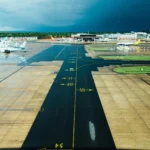In a world filled with hidden wonders and uncharted territories, some places remain shrouded in mystery, waiting for bold explorers and curious minds to uncover their secrets. One such captivating enigma is the phenomenon known as daskusza exploration a term that has begun to surface in scholarly circles and adventure communities alike. But what exactly is daskusza, and why is its exploration stirring global intrigue?
Origins and Meaning of Daskusza
The term “daskusza” is not widely recognized in mainstream discourse, but those familiar with it regard it as a cultural, geographical, or metaphysical concept rooted in lesser-known traditions. Often whispered about in small, esoteric circles, daskusza exploration refers to an immersive process of discovering both physical and philosophical dimensions of remote or obscured regions. Whether daskusza is a location, a spiritual path, or a blend of the two is still debated. What remains consistent, however, is the theme of exploration venturing into unfamiliar territory that challenges one’s understanding of the world and the self.
The Evolution of Daskusza Exploration
From Obscurity to Curiosity
In earlier decades, daskusza exploration was known only to a handful of ethnographers and mystics who studied the traditions of indigenous communities. These researchers documented tales of a hidden realm, often described as a “veiled mirror” of reality, accessible only through rigorous journeys or states of altered consciousness. Gradually, the concept found its way into underground literature and independent documentaries, sparking the curiosity of modern explorers who yearned for experiences beyond traditional tourism. The nature of daskusza exploration required not just physical endurance, but mental and emotional openness as well.
A Growing Interest in Uncharted Territories
Today, with the rise of digital storytelling and alternative travel blogs, the allure of the unknown is more appealing than ever. Enthusiasts who engage in daskusza exploration often document their experiences through vivid accounts, photographs, and even short films. These narratives contribute to a growing body of work that attempts to decode what daskusza truly represents. Unlike commercial adventures that emphasize entertainment, daskusza-inspired journeys focus on transformation. Participants speak of shifting perspectives, inner awakenings, and newfound clarity outcomes that traditional travel rarely promises.
Challenges in Daskusza Exploration
Physical Demands
One cannot discuss daskusza exploration without acknowledging the immense physical toll it can take. The journeys often traverse harsh terrains dense forests, steep cliffs, and remote highlands. Unlike guided tours, these explorations lack modern amenities and depend heavily on preparation, survival skills, and resilience. Participants recount stories of being pushed to their limits, facing unpredictable weather, and navigating through unmarked paths. Yet, they also describe a sense of empowerment that emerges from surviving these grueling conditions.
Mental and Emotional Resilience
What sets daskusza exploration apart is its introspective nature. Explorers often enter unfamiliar mental states as they detach from digital devices, city sounds, and fast-paced routines. This mental disconnection is both a challenge and a reward. Many speak of encountering past traumas or fears during their journey. The isolation and quietude of daskusza regions create a mirror through which travelers must face themselves. In this sense, the exploration becomes not just a physical act, but a deeply personal experience.
Cultural Perspectives on Daskusza
In some indigenous traditions, daskusza is described as a sacred dimension or spirit land accessible only to those who undertake a rite of passage. Elders from these communities act as gatekeepers of knowledge, sharing their understanding through rituals, oral histories, and visual symbols. Modern daskusza exploration efforts sometimes collaborate with these elders, honoring their wisdom while adapting practices for contemporary adventurers. This respectful exchange of knowledge bridges the old and the new, enriching the journey with meaning and authenticity.
The Ethical Debate Around Daskusza Exploration
As interest in daskusza exploration increases, so does the scrutiny surrounding its ethical implications. Some critics argue that popularizing such a mysterious concept risks commodifying sacred practices and landscapes. Others point out the environmental impact of increased human activity in pristine areas.
Responsible explorers advocate for sustainable practices, community engagement, and cultural sensitivity. They emphasize that daskusza should not become a trend or hashtag, but remain a meaningful pursuit that fosters respect for the land, its people, and the inner self.
The Future of Daskusza Exploration
The future of daskusza exploration lies in balance. On one hand, accessibility and curiosity drive more people to seek out the unknown. On the other, preserving the sanctity of such experiences demands restraint and mindfulness.
As more researchers and travelers document their journeys, a clearer picture of daskusza may emerge. Perhaps one day it will be integrated into academic studies or travel philosophy courses. Or perhaps it will remain elusive, its value lying in the pursuit rather than the destination. What’s certain is that the quest for understanding both of external landscapes and internal truths will continue. And in that quest, daskusza exploration offers a unique and deeply resonant path.
Conclusion
Daskusza exploration is more than just a form of travel it’s a philosophical and transformative experience that calls for courage, curiosity, and consciousness. As the world becomes more connected, the value of disconnected, meaningful exploration grows. Will you answer the call of daskusza and discover what lies beyond the edges of the known?
Frequently Asked Questions
What is daskusza exploration?
Daskusza exploration is a term that refers to a unique and often mystical journey into obscure or sacred territories. These explorations blend physical travel with deep inner discovery, often inspired by cultural and spiritual traditions.
Is daskusza a real place or a symbolic concept?
That depends on who you ask. Some interpret daskusza as an actual location known to specific indigenous groups, while others view it as a metaphor for a spiritual or transformative journey. Both interpretations contribute to its intrigue.
How can someone prepare for a daskusza exploration?
Preparation involves both physical training and mental readiness. Explorers must be fit enough to navigate rough terrain and emotionally prepared to engage in introspective experiences. Cultural research and respect for local traditions are also essential.
Are there risks involved in daskusza exploration?
Yes, there are both physical and psychological risks. Isolated environments, unpredictable weather, and emotional confrontations can make the journey challenging. However, for many, the rewards outweigh the dangers.
Can daskusza exploration be done alone?
While solo journeys are possible, many recommend traveling with a guide or a small, well-prepared group. Shared insights and safety in numbers enhance the experience and reduce risks.





